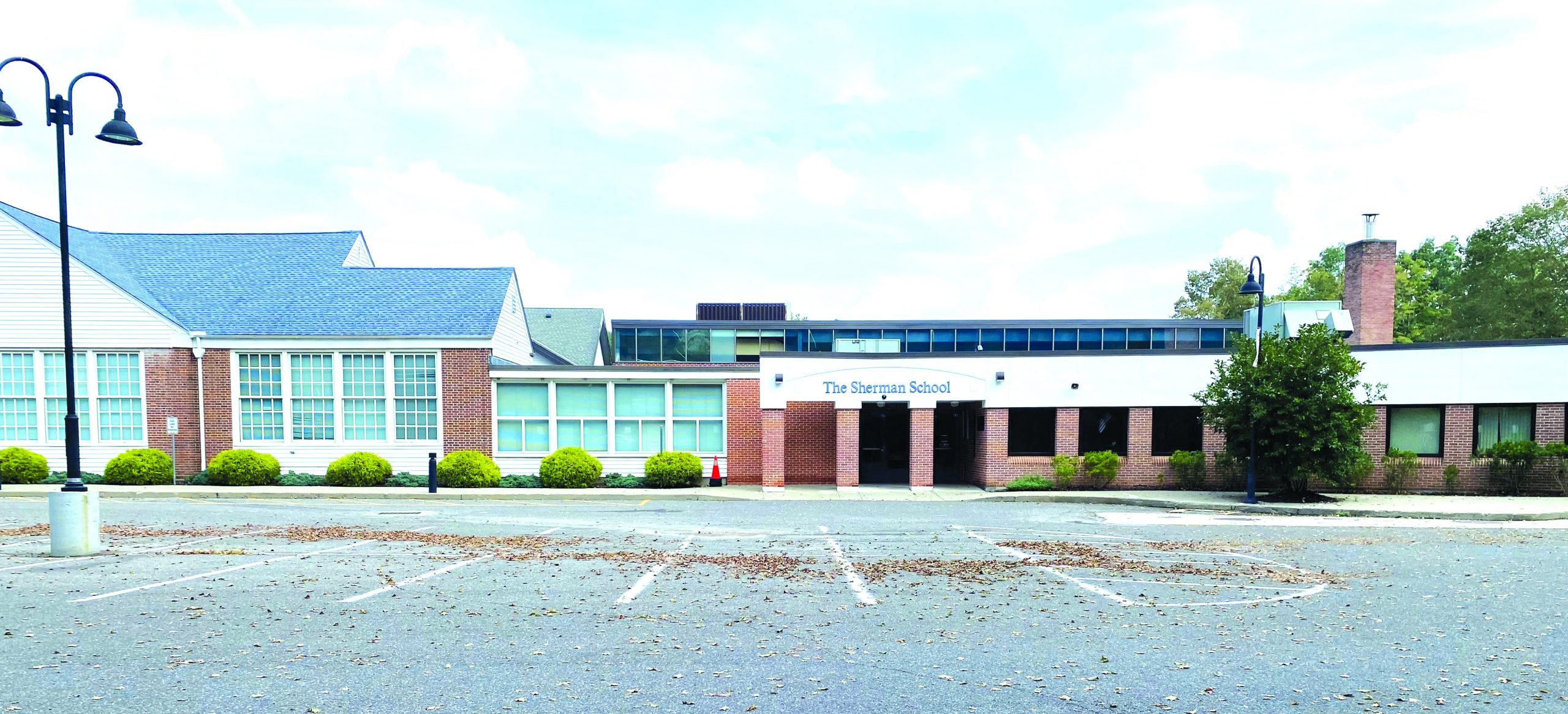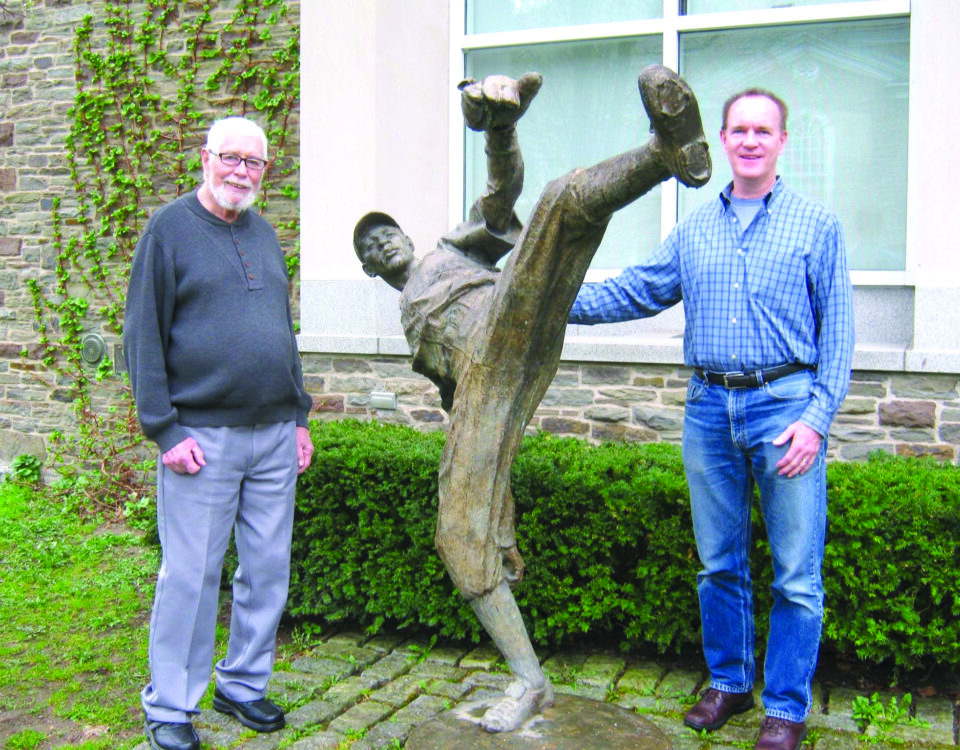
Sherman School Renovate-to-New Referendum Passes
October 11, 2024NF BOE Gives Updates on School Climate Policy, New Cell Phone Policy, and the Propane and Hot Water Issues
October 25, 2024By Sarah Opdahl
On Tuesday, October 8, New Fairfield’s Permanent Building Committee (PBC) heard a report from Consulting Engineering Service Consultant Mr. Mike Bouchard, who updated them on the plan to connect temporary propane service to New Fairfield High School’s kitchen and culinary classrooms, which have not worked properly since the school’s opening this academic year. The plan, which had input from AmTech Solutions and Mitchell Oil, is a “temporary line [that] may end up being permanent,” according to Colliers International’s Mr. Mark Schweitzer, and brings gas from the “temporary tanks” over the high school’s roof to feed the kitchens. Piping type was a point of discussion in the meeting.
Bouchard assured the PBC that the new pipe sizes will have enough flow and will provide adequate pressure, “we are trying to avoid a lack of pressure due to pipes being too small,” Bouchard said, especially as pressure was indicated as contributing to the cause of the propane issues that have plagued the school since its opening more than a year ago with fits and starts of usage throughout. Mr. Michael LaPorte from AmTech said a regulator can be added to increase the pressure in the future. With all costs being added to a rising errors and omissions tracking list, the PBC approved spending over $38,000 more on the issue, with the understanding that they may approve an additional amount for stainless steel rather than black pipe, once final estimates are returned.
PBC member Mr. Mike Del Monaco pushed back on the plan to install black pipe again, as that was what was originally installed, and questioned whether stainless steel made more sense given the issue with odor fade. LaPorte replied, that there is “different tooling that the guys will need to cut the threads in the stainless steel, rather than carb on pipe, so there will be a little bit more, maybe tooling expense on it, maybe a little bit more labor, and then the cost of the stainless steel, which wasn’t, surprisingly enough, wasn’t horrific compared to the line pipe. The line pipe was just, it was a substantial amount more.” LaPorte agreed that stainless “is probably the right decision,” but remarked, “Is it necessary? Probably not.” He vehemently rejected the idea of corrugated stainless steel tubing, which is apparently very difficult to work with.
Director of Business and Operations Ms. Carrie DePuy pushed back on potential delays being created by switching to stainless steel, “we are really struggling here, administratively and programmatically,” referring to the lack of propane to the kitchens in the cafeteria and classrooms in the high school, and she feared they were “going down a rabbit hole.” However, Del Monaco and PBC member Ms. Maureen Clegg both reiterated the higher degree of safety that is possible in the potential switch.
Schweitzer explained that a meeting was held among the science faculty, administrators, Colliers, and Town Fire Marshal Mr. Chris Alward. It was agreed that temporary measures can be taken to provide butane canisters in the science rooms, “It is a portable, temporary system, but it allows them to have open flame experiments.” He said they are “going through the logistics of that, and I can work up a price based on the product data that they provided us.” He went on to provide an update on the science classroom fume hoods, which have had a saga of their own since the school’s opening in September of last year. “O&G and the design team are working to tie the sensor into the control with the exhaust fan. The exhaust fan is being tied in with the Building Management System, and the feeling is that we can get the sensor to be tied into that as well.” As of now, alarms go off when the hoods are in use.
O&G’s Mr. Joe Vetro gave an update on the high school’s rusty hot water, saying “we are working through the logistics of implementing [a solution] with the school.” There is high iron content in the new building’s hot water heating system, “that just…causes the rust to drop out of the water. Once that happens, obviously it turns brown, causing that problem.” They lowered the temperature of the water and the problem is better but it still exists. It cannot be lowered further because it would compromise health codes for handwashing. They plan to work with the state water authority to investigate a filtering system that can help remove some of the iron content, but it will come with potentially high costs.
PBC members approved funding for staining that is occurring in eight areas outside of the high school. The overflow roof drains on the high school’s roof were encountering cast iron and the water flowing through, “would clean out the rust, and the rust would end up down the side of the building,” Vetro said. He went on to say, “We added extensions to the roof overflow drain. It has stopped the water from flowing through the overflow drain.” It was confirmed that the primary drain is handling typical rain and the overflow drains are still coming into play when there are heavy rains. Del Monaco pointed out that this was an error, “Because obviously it was done wrong, and it ended up, we ended up with a $10,000 bill because somebody made a mistake.” JCJ Architecture’s Ms. Christine O’Hare said that they need to consult with O&G on potential fault. In the meantime, Vetro is working with a consultant to clean the stains.
There was a moment of frustration for PBC member Mr. David Zeh when Del Monaco asked about the high school’s final commissioning reports, which he has asked for well over a dozen times, and was put once off again by Vetro saying the reports are not complete. “Since I joined the PBC…it is the same answer every month, every couple of weeks,” Zeh said. The town is withholding payment until the reports are received.
In public comment, Mr. Tom Perkins spoke out about the propane issue, saying “I do not believe that one penny of the town’s money should be spent correcting this propane issu e.” He went on to say, “I definitely think that you’ve made a mistake by authorizing more money to be spent on this that should be being paid for by either t he architects, the material supplier, or the contractor. I’m really angry about this.”
The next Permanent Building Committee meeting is scheduled for Tuesday, October 22, 7:30 p.m.

